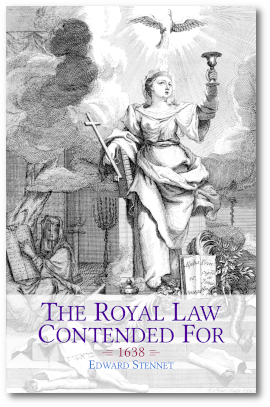 While researching some early Advent material, I came across a reprint of this article in the defense of the seventh-day Sabbath, from the days of the Dissenters in the mid-1600’s. Part of it was reprinted in the Review and Herald of September 2, 1851. Here is the description they gave:
While researching some early Advent material, I came across a reprint of this article in the defense of the seventh-day Sabbath, from the days of the Dissenters in the mid-1600’s. Part of it was reprinted in the Review and Herald of September 2, 1851. Here is the description they gave:
The friends of the Sabbath will be interested in the remarks of Edward Stennet as a valuable relic of the past. “He,” says the publisher of the American edition of his work, “was the first of the series of Sabbatarian ministers of that name, who for four generations continued to be among the foremost of the Dissenters in England. He suffered much of the persecutions which the Dissenters were exposed to at that time, and more especially for his faithful adherence to the cause of the Sabbath. For this truth, he experienced tribulation, not only from those in power, by whom he was a long time kept in prison, but also much distress from unfriendly dissenting brethren, who strove to destroy his influence.”
This is one of the earliest discussions of the Sabbath that I am aware of, and it also contains what might be the first printed observation that the Sabbath and Marriage are twin institutions passed down to us from Eden. Here is the excerpt from the book:
The two ancient institutions of the Lord in Paradise were Marriage and the Sabbath, both which are called and esteemed honorable. “Marriage is honorable in all” (Hebrews 13:4); and in Isaiah the Sabbath is called “…the Holy of the Lord, honorable” (Isaiah 58:13); and Christ leads us to the beginning of them both. When the question was whether men might put away their wives for every fault, the answer is, that Moses did but suffer it to be so, because of the hardness of their hearts, but from the beginning it was not so. Matthew 19:34-37. And when the Pharisees were so ignorant, that they thought works of mercy were not to be done upon the Sabbath day, Christ leads them to the first institution of it, and tells them it was made for man. Mark 2:24, 27. Both these institutions were made for the good and benefit of man in his Paradise estate, which is sufficient proof for their duration. Paul says, that “The man was not created for the woman, but the woman for the man.” 1 Corinthians 11:9. And our blessed Lord of the Sabbath said that “The Sabbath was made for man, and not man for the Sabbath.” Mark 2:27.
65p



